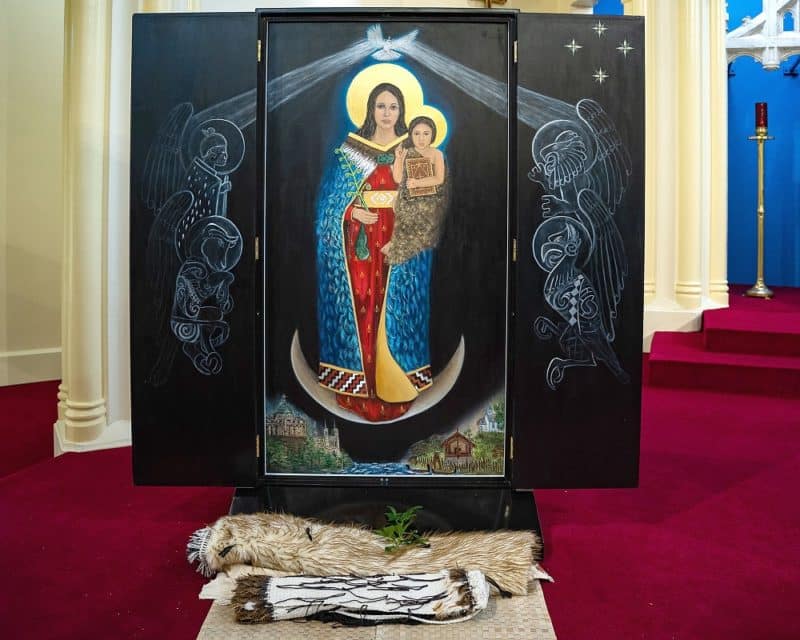Excerpts from an article by the late Bishop John Mackey on the Assumption
The bishops of New Zealand have made the feast of Our Lady of the Assumption the patronal feast of New Zealand. To me, this dedication is a sign of the vibrant hope in which the hierarchy faces our future. And hope is, I think, an appropriate virtue for a country as young as ours.
It was almost an accident of history that we became an English colony rather than a French one. For the first hundred years of our history, it was presumed that we would be a mirror image of the British Isles. It was only World War II and the decline of empires that forced upon us the reality that we are the tail of Asia. Our future is an uncertain one politically and even nationally. Roman Britain probably never imagined that it would become Anglo-Saxon.
So, with so uncertain a future before us, hope is an appropriate virtue. And why is the Assumption of Our Lady a feast redolent with hope, not only for the Church, but also for all of humanity? It is such because it is the fullest expression of Christianity’s hope that God will be faithful to his promises, as these have been expressed in the Sacred Scriptures. The Assumption of Mary is, as it were, the dotting of the “i’s” and the crossing of the “t’s” in our understanding of the paschal mystery of Jesus, the Son of Mary.
Generalisations are not very inspiring or confidence-building. They are like the manifestos of political parties. What gives us confidence is the concrete fulfilment of a promise. Under divine providence the Church is, as it were, the generalisation of a policy, and the Assumption of Our Lady is the concrete fulfilment of that promise. In effect, the Church witnesses to the policy “God wants everyone to be saved” (1 Timothy 2:4), and the Assumption of Our Lady, body and soul, into heaven is the concrete example of how the policy will be worked out.
We live in the reality of our family relationships. These relationships not only bring us into being, but they also situate our persons in the living matrix of life in which we come to learn who we are and how to love, and so to fulfil our own potential for goodness. Since this is our environment, the heavenly Father gave us a parallel set of relationships for our supernatural life. In those relationships, which are rooted in Jesus and fleshed out in Mary and the Church, we learn to become and to behave as children of Mary, brothers and sisters of Jesus and children of God. The perfection of that reality we will discover in heaven. This is the hope we live by.
The life, death and Resurrection and ascension of Jesus is, of course, the only foundation upon which that hope exists. However, the Church’s teachings on Mary are, as it were, grace notes on that reality of Jesus Christ. And so, in her, we see the fulfilment of the divine promises in a creature just like us. And so we can hope that, in due proportion, the divine promises will find their fulfilment in us too.
So, as we face the uncertainty of the future in this small country of ours, it is not inappropriate that the hierarchy should apportion us a national feast day so full of hope. If we persevere in the faith, which was Mary’s, then we too can look with confidence to our future in the certainty that “We know that, in everything God works for good with those who love him” (Romans 8:28).
Bishop John Mackey was Bishop of Auckland from 1974 until 1983. He died in 2014.

Reader Interactions